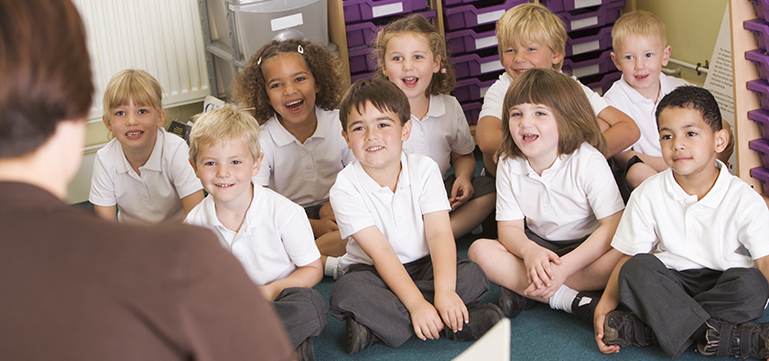Creating strategies to develop pupils’ independence

Information about the school
Coed Eva Primary School is in Cwmbran in the Torfaen local authority. Since September 2016, the school and Blenheim Road Community Primary School have formed the Federation of Blenheim Road Community and Coed Eva Primary Schools. Both schools share the same executive headteacher and governing body.
There are 488 pupils on roll, including 79 nursery pupils who attend the school part-time. There are 16 classes, including three mixed-age classes and one class for pupils with additional learning needs.
About 20% of pupils are eligible for free school meals, which is similar to the Wales average. The school has identified around 12% of its pupils with additional learning needs. This is lower than the Wales average. Most pupils are of white British ethnicity and a very few pupils have English as an additional language. A very few pupils speak Welsh at home.
The headteacher has been in post since 2009. She became executive headteacher of both schools in the federation in September 2016.
Context and background to the effective or innovative practice
The school is a caring environment where staff encourages pupils to develop strong personal values, such as tolerance, fairness and respect. The wellbeing of all pupils is central to the school’s ethos and this ensures that the school is a happy community where pupils can thrive and learn well.
In order to further develop pupils’ confidence, independence and resilience, to overcome challenges in their learning and foster a culture of inquiry and discovery, the school devised and implemented a number of strategies linked to Growth Mindset and learners attitudes to learning. Strategies were informed based on the findings and research conducted by staff members who were involved in the University of South Wales (USW), Action Research Circles (ARC) project.
Strategies involved, creating, developing and implementing metacognition characters unique to the federation, James Nottingham’s ‘Learning Pit’ strategy and utilising the schools Pupil Leadership Team (PLT) to monitor pupils’ attitudes to learning through the learning detectives programme.
Description of nature of strategy or activity
Pupils and staff developed six metacognition characters and relevant stories for example ‘Self-believing Sam’. Each character is introduced half termly via a whole school assembly. Here, the story is shared and the pupils have an opportunity to reflect on how they are going to use the characters learning traits within their lessons. The key messages are reinforced in class, where pupils are rewarded for their positive attitudes to learning via unique certificates, celebrations via social media and other rewards.
The PLT conduct lesson observations focusing upon learners learning behaviours and attitudes to learning. Here, they provide feedback to pupils and staff, including ways forward, which impact upon teaching and learning. The PLT also feedback to the Senior Leadership Team (SLT) and the governing body which feeds directly into the schools self-evaluation process.
The Learning Pit is also used as a tool to promote challenge, inquiry and discovery in the classroom. In the foundation phase, learners use a physical resource to develop pupils’ resilience and determination towards challenges. In key stage 2, the strategy is built upon to promote reflective practise where pupils are continually learning from their mistakes through inquiry and discovery.
What impact has this work had on provision and learners’ standards?
Pupils’ wellbeing and attitudes to learning are very strong. Nearly all pupils behave in an exemplary manner in lessons and at break times.
Nearly all pupils are very well motivated and engage highly effectively with their learning. They develop independent learning skills well in the foundation phase and use these purposefully as they progress through the school. They collaborate well in pairs and small groups and, as a result, their confidence in speaking with others develops very well. The positive interaction and collaboration among pupils are a strength of the school.
Nearly all pupils are resilient learners. They are confident to take risks and undertake new challenges, and they understand that they often learn from making mistakes. Across the school, pupils use a good range of strategies to help them when they encounter challenges in their work. This enables them to approach new learning activities with confidence.
How have you shared your good practice?
There is considerable school-to-school working within the cluster, school improvement group and across the consortia. This has been shared in the form of Lead Network Schools (LNS) programme, through the USW, ARC partnership and via numerous bespoke partnerships.
Useful links
Other resources from this provider

Developing strong personal values at school

Literacy and the Foundation Phase - September 2011
pdf, 751.18 KB Added 01/09/2011